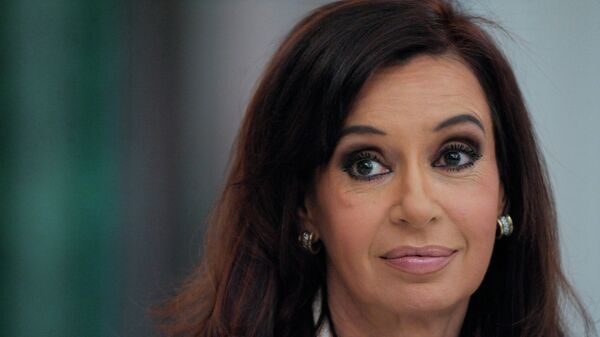MOSCOW, August 4 (RIA Novosti) - For the second time in 13 years, Argentina has defaulted on its debt.
Back in 2001, amid the country’s worst economic crisis, the peso underwent a sharp devaluation; the country’s banking system failed and unemployment figures reached 20 percent. Everyone wanted to convert their money into dollars. The government limited withdrawals, triggering mass protests all over the country.
In January 2002, the government of just-elected President Eduardo Duhalde announced a formal default on a total of $82 billion in sovereign bonds.
Following the default, a devaluation of the peso caused sudden rise in inflation to more than 40 percent and a fall in real GDP of 11 percent in 2002.
By 2003, Argentina’s economy rebounded, though it still operated at below pre-crisis levels.
Argentina began a process of debt restructuring in January 2005, that allowed it to resume payment on the $82 billion in sovereign defaulted bonds.
In 2005 and 2010, Argentina offered new exchange bonds to the holders of the original defaulted debt that paid 33 cents on the dollar. Ninety-three percent of the bondholders accepted the offer, realizing that if they refused, they would be left with nothing at all.
Argentina has continually refused to pay the remaining 7 percent of the bondholders, saying that its central banks' foreign reserves of $29 billion would be depleted by such a payment.
In 2012, New York District Judge Thomas Griesa ruled that Argentina could not pay the exchange bonds without paying the holdouts. The total holdout claims were estimated at $15 billion, equivalent to half of Argentina’s foreign exchange reserves. Argentina appealed, but lost the case in the US Supreme Court.
Argentina claimed that judge Griesa “is clearly an agent for the vulture funds,” and that the ultimate responsibility for the crisis lay with the US government.
During the negotiations, President Cristina Fernandez de Kirchner disregarded the fact that Argentina signed a contract allowing US jurisdiction in the event of a dispute over the bonds.
Argentina’s failure to reach an agreement with the holdouts before the July 31, 2014, deadline triggered another country’s default.
At an August 1 hearing, the US Judge overseeing the case ordered the parties to continue negotiations and said that Argentina’s default has not removed the necessity on working out a settlement.
Now, as Argentina faces further isolation from global financial markets, the country’s government plans to take the case to the International Court of Justice in The Hague.



